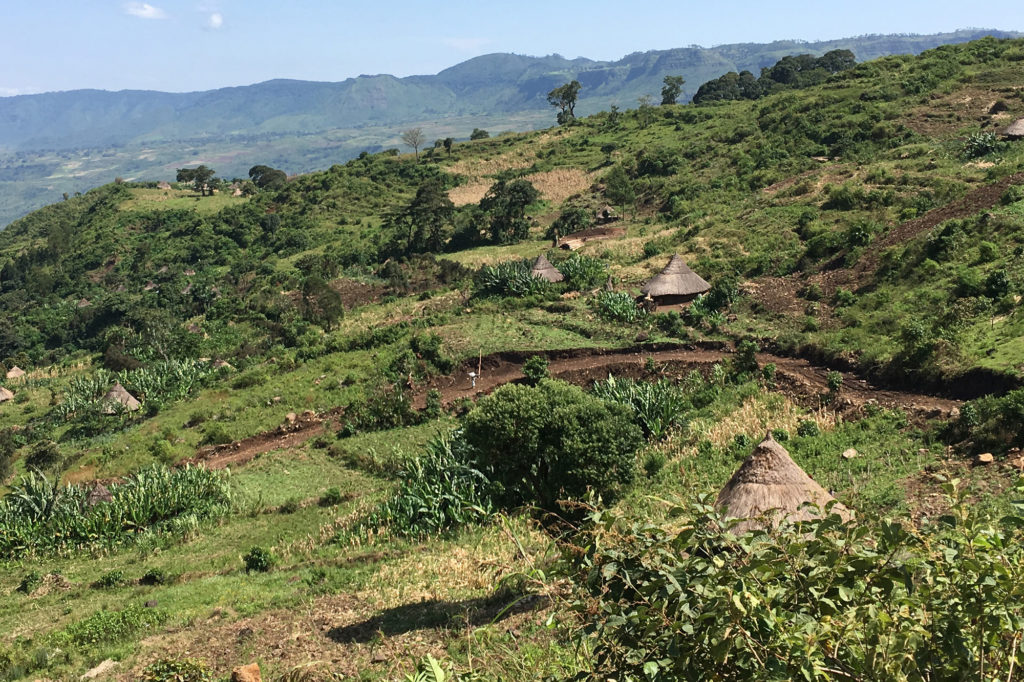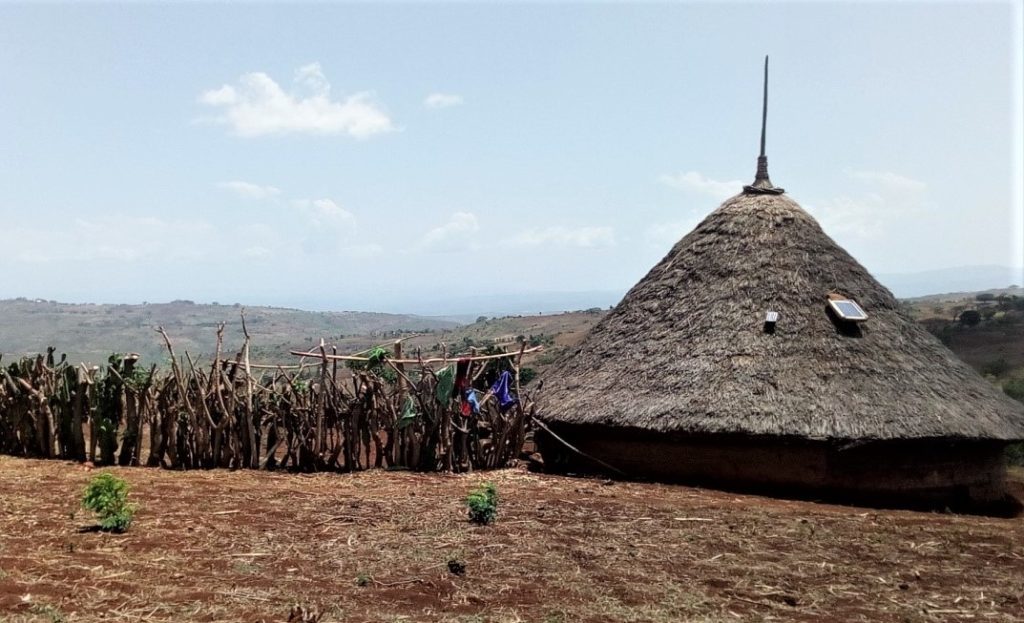
NRECA International has begun the process of forming a new electric cooperative in Ethiopia to bring electricity to remote farming villages and serve as a model for a possible expansion of co-ops throughout the nation.
About 2,000 households have expressed interest in becoming co-op members, and NRECA International is working with the Ethiopian government to draw up bylaws this month, said Nick Allen, country director for Ethiopia. The bylaws will then be taken to the community to review and approve, and NRECA International will work with village leaders to draw up a business plan by as early as year’s end.
NRECA International is supporting the cooperative formation effort with technical assistance and a direct grant, Allen said. A total of $25,000 has been donated to finance solar home systems that will be leased to cooperative members in Maji, a town located in southwest Ethiopia. These solar home systems provide electric lamps, mobile phone charging and enough power for a small television.
The plan is for the new co-op to take over the solar home system sales and provide ongoing maintenance and repair. As the business grows, the co-op would develop a mini-grid in Maji to serve the entire town, Allen said. The new co-op could take about six months to a year to get up and running, he said.
“It’s a very grassroots kind of approach,” said Allen, noting that residents of Maji district villages have nominated steering committees to help create the co-op. “We’re investing in it in the hopes that it will lead to larger things in the future, with some funding from outside.”

NRECA International has been doing work in Ethiopia for more than five years, partnering with the government to create a national electrification strategy and explore off-grid and smart-grid projects. That work has been funded by the World Bank, the U.S. Agency for International Development and the U.S. Trade and Development Agency.
“Our work with the government and the Ethiopian Electric Utility has been focused on supporting national electrification expansion needs, but it is clear that electric cooperatives have a significant and vital role to play in rural areas where EEU will not serve for many years to come,” said Dan Waddle, senior vice president of NRECA International. “The off-grid business environment is difficult, but we believe cooperatives provide a solution that other business models are unable to achieve.”
Ethiopia has a rich history of cooperative societies, and the cooperative model is used in major business sectors such as banking and transportation, Allen said. However, past efforts by other groups to form electric co-ops failed in part because they weren’t based on the robust model that NRECA co-ops use, he said.
“The market has been dominated by one big public utility, and the idea of a non-government actor providing electricity is new to most people in Ethiopia,” Allen said. “I think the cooperative model can ease the transition. Only 10% of the rural areas are electrified, and it’s too big for one public utility to handle. The government has set a goal of universal access to electricity by 2035, and it needs new ways to reach rural communities.”
For the subsistence farmers of the Maji district, electrification can open up new opportunities to sell their crops by providing them with refrigeration to prevent spoilage and irrigation to increase production, Allen said. Farmers in the region grow maize, sorghum, wheat and barley and raise chicken, goats, sheep and cattle. Electricity from the co-op also would allow small businesses, such as woodworking shops, to stay open after dark, Allen said.
“We hope that this will be a sustainable and long-term solution to provide something that most people around the world take for granted,” he said.
Erin Kelly is a staff writer at NRECA.